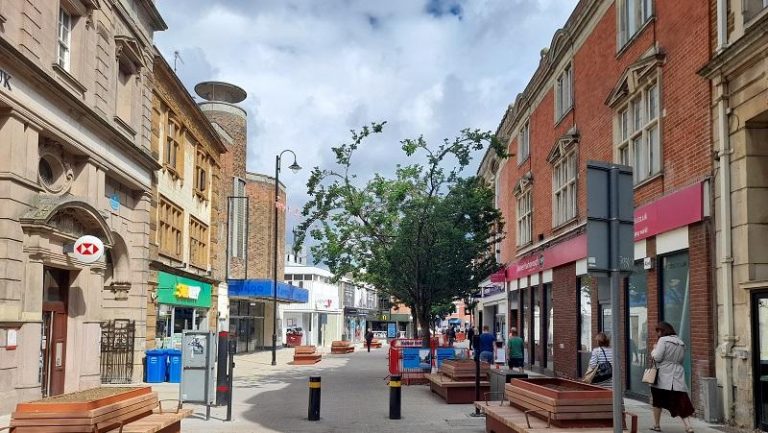- Manufacturing output growth slowed slightly in the three months to June (balance of +25%, from +30% in May). Growth is expected to ease further in the three months ahead, but expectations remain well above their long-run average (+20%; average is +9%).
- Output increased in 12 out of 17 sectors in the three months to June. The motor vehicles and aerospace sub-sectors provided the largest contribution to the headline balance this month, while the food, drink & tobacco sub-sector made a negative contribution for the first time in just over a year.
- Total order books were seen as above normal to a lesser extent than last month (+18% from +26% in May), while the volume of export order books fell back to a normal level (+1% from +19% in May).
- Stocks of finished goods were seen as adequate in June, after being reported as inadequate in all but one month during the previous 13 months (+2% from -15% in May).
- Expected domestic price growth for the three months ahead eased markedly in June (+58%, from +75% in May and a survey record of +80% in March). This was the weakest expectations for selling price inflation since September 2021.
Tuesday, August 5, 2025
UK manufacturing output slowed in the three months to June, while total order books and export order books also softened. Output growth is expected to slow further in the quarter ahead, while expectations for domestic price growth fell back to a nine-month low. That’s according to the latest monthly CBI Industrial Trends Survey.
The survey, based on the response of 212 manufacturers, found:
A manufacturer of concrete architectural elements and garden ornaments, and its director, have been fined after an employee sustained life-changing injuries when his arms became trapped in a cement mixer.
Nottingham Crown Court heard that on 8 August 2018, the employee was using the cement mixer at the company’s premises on Nottingham Road, Alfreton, to prepare the concrete mix for the ornamental castings.
The employee attempted to stop the machinery to retrieve something from the mixing pan. However, when he reached inside, his arms came into contact with the mixing paddles, and he was dragged almost entirely into the mixer.
He managed to pull himself out but was seriously injured. As a result of the incident his left arm was amputated at the upper arm level and his right arm had to be amputated at the mid forearm. He also sustained injuries to his ribs, face, back and shoulders.
An investigation by the Health and Safety Executive (HSE) found that David Sharp Studio Limited had failed to take sufficient steps to guard against the risks of entrapment and injury posed by the cement mixer.
The employee had been exposed to the risk of serious injury by requiring him to operate the mixer with the lid open whilst standing next to it. There was a failure to provide guards or to interlock the operation of the mixer in order to reduce the risk of accidental entrapment or foreseeable misuse.
There was also a failure to train, instruct and supervise the employee to ensure that he was aware of, and followed, safe procedures for working on or near the mixer whilst it was in operation. The HSE investigation also established that the company director, David Sharp, was aware of the unsafe conditions and allowed them to continue.
David Sharp Studio Limited of White House, Clarendon Street, Nottingham, pleaded guilty to breaching Regulation 11(1) of the Provision and Use of Work Equipment Regulations 1998. The company was fined £1,000.
David Sharp, also of Clarendon Street, Nottingham, pleaded guilty to a charge under Section 37 of the Health and Safety at Work etc. Act 1974. He was fined £2,000, disqualified from being a company director for seven years and ordered to pay full costs of £30,802.35.
HSE principal inspector Samantha Farrar said: “This incident could so easily have been avoided by simply providing effective guarding to prevent access to dangerous parts of machinery.
“Companies and individuals should be aware that HSE will not hesitate to take appropriate enforcement action against those that fall below the required standards.”
People driving local business growth are being invited to serve as ambassadors in promoting and supporting development of enterprise in Leicester and Leicestershire.
The Leicester and Leicestershire Enterprise Partnership (LLEP) is advertising for inspiring local figures to join its Board of Directors.
The available roles come on top of the ongoing campaign to recruit a new Chair to work alongside senior figures across varied sectors in the region.
The LLEP is recruiting for successful and respected individuals with records of organisational leadership, entrepreneurship and management. They will advocate for the region on the local and national stage.
The roles come at a key time for the LLEP. It is currently working with partners across business, local government, education and the third sector towards the Government’s emerging Levelling Up and County Deal agendas.
Government has committed to the role of LEPs as an independent business voice and the successful candidates will join the Board at an important time in both implementing current plans and developing proposals of its Economic Growth Strategy 2021-30.
Successful candidates will become part of a team that influences economic development across the area, considering the LLEP’s four strategic pillars of Innovation, Sustainability, Productivity and Inclusivity as it tackles key issues including skills, infrastructure and the zero-carbon agenda.
The LLEP is working towards equal representation on its Board by 2023 and is particularly keen to hear from female applicants.
Candidates will need to have broad commercial experience, as well as the ability to work with public sector bodies, while demonstrating resilience, diplomacy and influence.
They will also need to act with honesty, frankness and objectivity, when taking decisions and pursue constructive relationships.
Directors attend LLEP Board meetings, currently held every two months in and around Leicester and Leicestershire. They may also represent the LLEP at meetings with businesses, stakeholders, other LEPs and with Government officials and ministers.
Emma Anderson, Director at Freeths, LLEP Board Member and Appointments Committee Member, said:
“Incoming directors will help to collaborate positively with our partners in shaping the LLEP’s future role as we simultaneously oversee the ongoing delivery of vital local services.
“We know that the LLEP faces a period of change – what these positions represent is the chance to influence that change in a constructive way as we continue serving as independent ambassadors for enterprise across Leicester and Leicestershire.”
Another step has been taken on Nottingham’s journey to become carbon-neutral by 2028 with the introduction of a new environmentally-focused planning document.
The Informal Planning Policy Guidance, consulted on by Nottingham City Council in autumn 2021, will support residential and commercial developments and will seek to reduce carbon emissions from buildings.
It promotes a range of measures that developers can employ to reduce carbon in their proposals, which relate to energy efficiency, renewable energy and sustainable design and construction.
The National Planning Policy Framework currently gives local authorities few powers to insist that environmental considerations are included within the design and build process.
But with the introduction of the new guidance, all future planning applications in Nottingham of ten or more homes, or commercial developments of 1,000m2 and above, will need to be supported by a Carbon Reduction/Energy Statement.
This must set out how it will contribute towards the council’s wider carbon-neutral pledge and how the new buildings will use energy. It is hoped that by requiring a statement for all major planning applications, significant reductions in emissions will be achieved.
Traditional buildings consume around 40 per cent of the total fossil fuel energy in the UK and are significant contributors of greenhouse gases.
The council has made a commitment to work with partners to become a carbon-neutral city by 2028. This means reducing emissions from direct and indirect sources that arise from the use of energy within the city to near zero, plus offsetting those which cannot be eliminated.
Councillor Pavlos Kotsonis, portfolio holder for leisure, culture and planning at Nottingham City Council, said: “Our pledge is bold and forward-thinking, but we know that its delivery in the city will depend on partners and organisations across a number of sectors coming on board to help – we can’t do it alone.
“Given that buildings are one of the most significant sources of carbon emissions, the Planning Guidance is an important piece of work undertaken by the council to allow us to ensure due consideration is given to environmental measures.
“It will have an immediate impact on emissions as developers are now required to demonstrate how their buildings use energy, while it strongly promotes low-carbon methods.
“There is a distinct lack of this in national Government legislation at the moment and, while this local policy is informal, it will allow us to effect meaningful change through negotiation and consent.
“Moving forward, the council will be progressing a Supplementary Planning Document to support its approach to carbon neutrality and formulating new policies to tackle the issue in its emerging Strategic Plan, which will secure increasingly sustainable and carbon-neutral development.
“I look forward to continuing to work with the development sector in tackling this global climate emergency.”
Equity investment in UK smaller businesses reached record levels of £18.1bn in 2021, as revealed by The British Business Bank’s Small Business Equity Tracker 2022, published today.
UK equity investment more than doubled in 2021 compared to the previous year – the highest annual investment amount since the data series began.
Smaller businesses in the East Midlands secured £154m of investment across 50 deals. This represented a 92% per cent increase on 2020, while the number of deals increased by 32 per cent.
Technology and IP-based businesses attracted the largest amount of investment of all sectors in the East Midlands at £35.2m.
The report overall shows encouraging signs for regional businesses, including an 11 per cent increase in equity investment deals in the English regions outside of London and devolved nations to 1,330 deals worth a total of £6.2bn. Another positive sign is the 21 per cent increase in the number of deals involving an angel outside of London compared to 2020 figures – the number of deals reached 373, whilst the value of those deals increased by 87 per cent to £1bn.
The British Business Bank’s equity programmes supported around 14 per cent of all equity deals between 2019 to 2021. The Midlands Investment Fund (MEIF), delivered by the British Business Bank, is one of the Bank’s programmes providing commercially focused support through debt and equity finance. The Fund as now invested over £170m into small businesses across the Midlands since its launch in 2017.
A total of 769 investments were made in 546 businesses throughout both the West and East Midlands. An additional £270m of private sector co-investment has also been leveraged as a result of the MEIF’s support.
Dr Sophie Dale-Black, UK Network Director, Midlands at the British Business Bank, said: “The East Midlands is home to many innovative businesses who are hungry for growth, shown by a record year of investment and deals secured. A clear sign of investor confidence in the region’s smaller businesses following the pandemic.
The emergence of tech in the region is welcome and shows demand from highly innovative business to grow here.
Whilst there are signs of this momentum continuing in early 2022, smaller businesses will be mindful of potential economic headwinds in the coming months and year. We will continue to provide businesses with the access to finance they need to start up and thrive in the East Midlands.”
TopHat, the 3D modular house builder, is to open a new, 650,000 sq ft facility in Corby, Northamptonshire in 2023, equivalent to the size of 11 football pitches.
This major investment builds on the success of TopHat’s existing site in Derby which already produces up to 800 homes per year.
The new facility will bring together the latest robotics and TopHat’s proprietary technology to manufacture and distribute up to 4,000 homes per year. One thousand new, green economy jobs across a wide range of roles will be created and a training academy will be established in partnership with local colleges.
The new Corby facility will be the anchor tenant in the new Magna Park site being developed by GLP, the global logistics development manager, as part of a multi-million-pound investment in the site. Construction will begin later in the year, with the facility expected to be delivering its first homes by the end of 2023.
Jordan Rosenhaus, CEO and founder of TopHat, said: “TopHat’s new facility will increase our capacity to over 4,500 homes a year. Our homes are designed to be beautiful and green, being low-carbon to build and much cheaper to run. TopHat is playing a leading role in transforming home building in the UK, improving quality, reducing costs and protecting the environment. We are also delighted to be creating 1,000 new jobs in Corby supported by a major investment in training through the TopHat Academy.”
James Atkinson, development director of GLP, said: “We are delighted that TopHat will be the anchor tenant for our new Magna Park in Corby bringing not only investment and jobs to the local community but also delivering innovative new homes which will be an important part of our future.”
Verdant Regeneration has secured outline planning permission for the redevelopment of the 200 acre New Stanton Park, J.25 M1, with the potential to deliver up to 4,000 jobs.
Verdant Regeneration submitted an outline planning application in late 2021 for the redevelopment of part of the former Stanton iron works, to be known as New Stanton Park, with the scheme set to deliver c.2.6 million sq ft of new build high quality warehouse and industrial space, having the ability to deliver a single building in excess of c.1 million sq ft.
The new development situated between Derby and Nottingham, just 2.5 miles from the M1, is being jointly marketed by M1 Agency and TBD Real Estate.
David Grier of Verdant Regeneration said: “Having acquired the site in 2020, we have worked hard across the team to quickly bring forward an outline planning application on what is one of the largest regeneration projects within the region. We are delighted to have now successfully secured outline planning consent and thank Erewash Borough Council for the professional manner and efficiency in which they have dealt with the planning application.
“New Stanton Park offers an excellent strategic location, blending an active rail connection with strong private and public transport connectivity, plentiful labour and a large and significant power supply. When combined, we are confident this will result in a highly successful development with the next chapter set to positively transform and improve the area, bringing forward large scale job creation in the process.”
David Ward Snr of Verdant Regeneration added: “Securing outline planning permission is a hugely important step in bringing forward the regeneration of this major landmark site. In its redevelopment we are aiming to deliver high quality real estate that will drive occupier activity and job creation. We will do this with a sustainable approach, combining energy efficient buildings with large amounts of amenity and green space. New Stanton Park will also see fishing ponds, rural walkways and cycle tracks designed to enhance biodiversity and link the site and its wider communities.”
James Keeton of joint agents M1 Agency added: “Outline planning approval is a major milestone in the delivery of New Stanton Park and the regeneration of this former brownfield site. With strong initial interest we are confident of quickly bringing forward development and realising the transformation and improvement of the area in a high quality and sustainable manner, most importantly, delivering large scale job creation in the process.”
Chris Drummond of joint agents TDB Real Estate finished by saying: “The redevelopment of the site has been talked about for a significant period of time and it is excellent news that it is now hopefully set to come to fruition. Verdant Regeneration have been hugely pro-active in their approach since purchasing the site and with active occupier engagement we welcome the delivery of an outline planning consent to thereafter bring forward the transformation and improvement of this strategically important site.”
A flagship 10-storey residential development in Nottingham has celebrated a key construction milestone — with the steel structures on Queen’s Road reaching their highest point.
The 348-apartment Queen’s Road scheme, which is located next to Nottingham Train Station, was brought forward by blocwork, a Joint Venture partnership between Network Rail and bloc Group who secured planning permission in 2019.
In 2020, Grainger plc, the UK’s largest provider of private rental homes, agreed to acquire the scheme through a forward agreement and add it to its portfolio of UK rental developments, its first in Nottingham. Construction activity started in early 2021, led by GRAHAM.
Reaching up to 10-storeys in height, the development, known as the Barnum, will transform the frontage of Queen’s Road adjacent to the train station. Designed by Nottingham-based Franklin Ellis Architects, the Build to Rent scheme will provide a range of homes and resident amenities.
Residents will benefit from access to a shared residents lounge, gym, private dining room and roof terrace. At street level, there will be space for small businesses and a café, which will be accessible to the public.
A mix of studio, one-, two-, and three-bedroom apartments will broaden the choice of homes for renters in the city and appeal to a wide range of people looking to live within easy reach of the attractions of Nottingham city centre.
The new public spaces being created will feature attractive paving and tree planting, with widened pavements, enhancing the vista along one of Nottingham’s most prominent roads.
To mark the scheme’s latest milestone, a Topping Out ceremony was held on site on 17 June. Representatives from Bloc Group, Network Rail, Grainger, GRAHAM, Franklin Ellis Architects, and Walker Sime gathered to celebrate the occasion where they were joined by Cllr Ayoola from Nottingham City Council.
Robin Dobson, group property director, Network Rail, said: “As a strategically important site in the UK, we are proud to be partnering with Grainger to deliver much needed high quality homes on this brownfield site. This is a partnership that focuses on the Government’s strategy to accelerate the rollout of housing to drive local economic growth.
“It’s a project that demonstrates the pivotal role our railway can play in unlocking sites which deliver growth. We’re delivering it through a public and private partnership, an approach we’ll be looking to replicate in other towns and cities across the country. It will provide long-lasting benefits for the local community and the region.”
Helen Gordon, Chief Executive, Grainger plc, said: “We’re thrilled to have reached this milestone for our Barnum scheme – the first of its kind for Nottingham and our first Build to Rent scheme in Nottingham, one of our key target cities. We are really looking forward to seeing the development brought to life over the coming months – bringing high quality homes and a commitment to excellent customer service to renters in Nottingham.”
Richard Thomas, director at Bloc, said: “Working with our partners to bring forward The Queen’s Road development has been particularly exciting because it will provide a quality of accommodation and facilities not currently available in Nottingham. The host of facilities on offer for residents will see us establish a permanent residential community in the area, with the development managed for the long-term to maintain the quality of construction and management of the building. The Barnum scheme is a landmark development in Nottingham and is sure to play a large role in developing the city’s southern gateway into a vibrant area and a top destination for city living.”
Cllr Ayoola at Nottingham City Council said: “It’s great to see the Queen’s Road development reach such a major milestone. The project is a great example of how we can realise the objectives set out within the Adopted Local Plan. The mix of apartment sizes within the development will help to better meet the needs of our diverse population whilst encouraging our aspiring talent to remain in the city.”
Ronan Hughes, regional director at GRAHAM, added: “Queen’s Road is a great project for us to be working on, revitalising this prime site at the heart of Nottingham. It’s pleasing to reach such a significant milestone and start to see the scheme really taking shape. We’re confident it will have a hugely positive impact on the city and we look forward to finishing the job and delivering a scheme we can all be proud of.”
The scheme is expected to complete by early summer 2023.
The University of Derby has launched a plan, which aims to drive forward the recovery and regeneration of Derby and Derbyshire.
The Civic University Agreement, created following extensive consultation, details the long-term civic ambitions of the university – and how it intends to work with 15 other organisations to achieve its goals.
At a recent launch event, the university was joined by some of those signatories, which includes University Hospitals of Derby and Burton NHS Foundation Trust, Derby City Council, Derbyshire County Council, East Midlands Chamber, D2N2 Local Enterprise Partnership and Derby Cathedral.
Professor Kathryn Mitchell CBE, vice-chancellor of the University of Derby, said: “The University of Derby has always been civic – educating, innovating, creating, making, and inspiring, but this is the first time we have explicitly set out our civic intentions and articulated the overall impact made by the university and its staff and students.
“Through our Civic University Agreement, we are making a clear statement of intent as to how we will approach our civic role moving forward.
“However, the ambitions we have set out need support from others if we are to achieve them and I am overwhelmed by the positive response from the organisations we approached to be signatories and who will be alongside us on this important journey.”
The agreement aims to channel aspirations, support local communities, share knowledge and enhance the area’s overall offer and vibrancy.
It focuses on five core goals, designed to make a positive impact on the people, communities, organisations and businesses within Derby and Derbyshire.
They are to secure the university’s future, drive ambition and positive change, make a positive environmental impact, support health and wellbeing and invest in culture as a driver for change.
During the launch event, each goal was brought to life through a civic showcase, highlighting the breadth of projects and initiatives underway.
These included presentations on apprenticeships and skills, raising aspirations, green travel and the university’s research into long-Covid.
Councillor Chris Poulter, leader of Derby City Council, said: “It’s really exciting to be a signatory of this Civic University Agreement alongside so many other key partners in the city and region.
“The university is critical to the economic, social, cultural and environmental wellbeing of Derby, and I’m pleased to see those themes reflected in the agreement.”
Councillor Barry Lewis, leader of Derbyshire County Council, said: “We are delighted to have signed the Civic University Agreement as it contains extremely positive, ambitious and forward-thinking aims and objectives which very much align with our own.”
Scott Knowles, Chief Executive of East Midlands Chamber, said: “This Civic University Agreement demonstrates the leading role in transforming place, stimulating economic growth and providing skills for the future that the University of Derby will take to contribute to the long-term economic prosperity aspirations that exist in Derby and Derbyshire.”
Will Morlidge, Chief Executive of the D2N2 LEP, said: “The Civic University Agreement is a clear sign that partners remain committed to improving social mobility and driving forward innovation and the economic prosperity of our city and county.”
More improvements to the street scene of Kettering will soon start thanks to an additional £500,000 of Historic England funding, which has been awarded to North Northamptonshire Council (NNC).
It is hoped that works will extend from Dryland Street to Crispin Place, following earlier works being completed on High Street, Gold Street, West Street and Meadow Road.
Due to the high quality of the materials and workmanship on the previous phase of the project, alongside the improvements to accessibility for town centre users, Historic England has awarded NNC additional funds to allow larger areas of the High Street to be improved.
The works are part of the Kettering High Street Heritage Action Zone (HSHAZ) project, a partnership between North Northamptonshire Council and Historic England. The additional phase will have the same materials and design principles already used along the High Street.
Cllr David Brackenbury, the Council’s executive member for growth and regeneration, said: “I am so pleased that Historic England have recognised the high quality of the scheme and that work can continue along the High Street. Once finished, this work will make a real difference to Kettering and breathe new life into the town centre.”
Cllr Jason Smithers, leader of the Council, said: “Throughout this project, the aim has always been to encourage people to visit and stay a while in Kettering, using the businesses and services across the town. By the end of this phase the work will really showcase Kettering’s heritage and help improve footfall in the town. I cannot wait to see the end result.”
Louise Brennan, Historic England’s regional director – Midlands, said: “The improvements to the public realm on Kettering’s High Street are really impressive – the quality of the design and materials perfectly compliment the many historic buildings that give the town centre its strong character. We are delighted there is more proposed work to come to continue this enhanced public realm as part of the High Street Heritage Action Zone.”
Street scene improvements began in January along the southern end of the High Street, Meadow Road and Gold Street, with all work now due to be completed by Autumn 2022.












